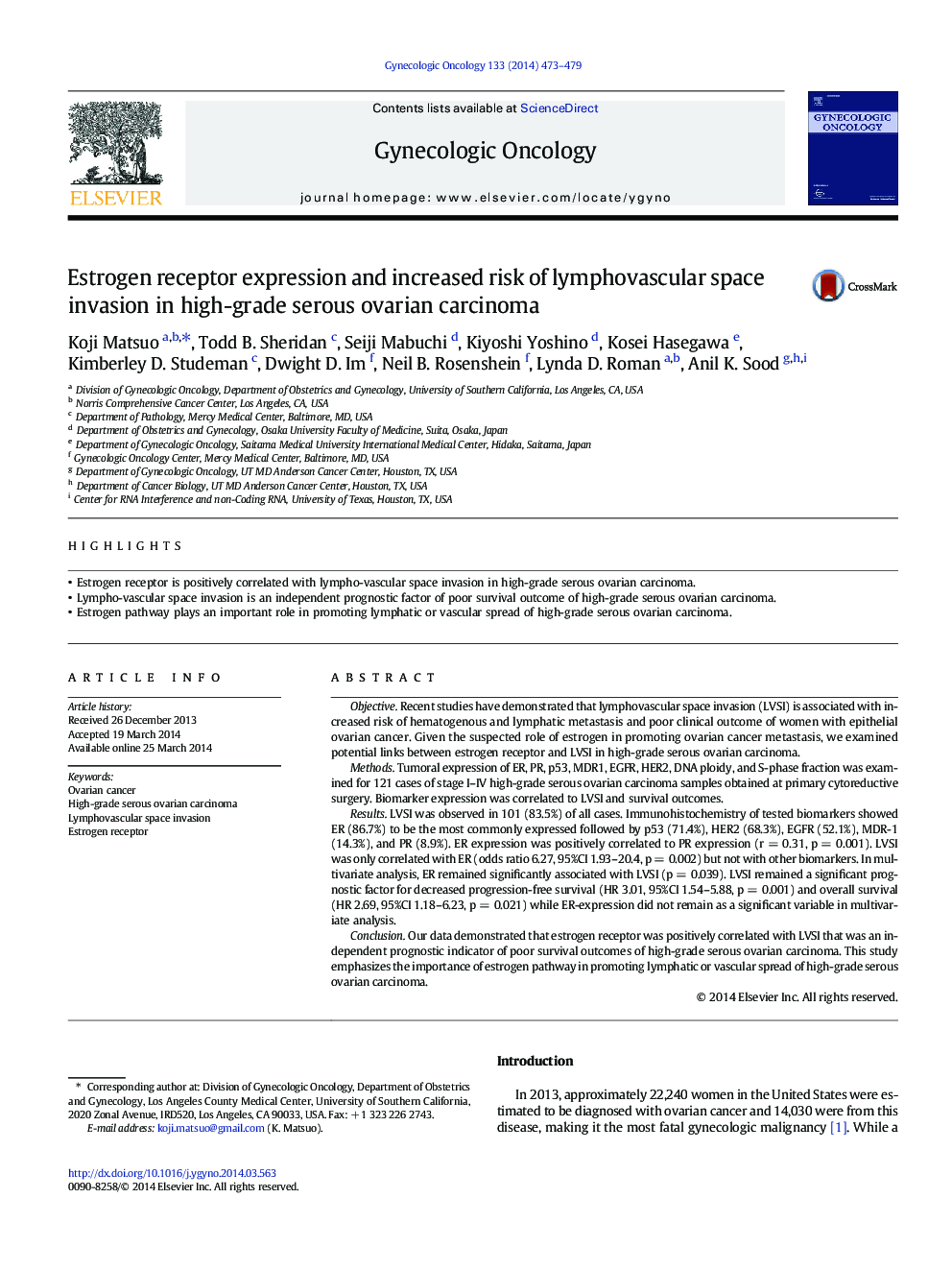| Article ID | Journal | Published Year | Pages | File Type |
|---|---|---|---|---|
| 3944605 | Gynecologic Oncology | 2014 | 7 Pages |
•Estrogen receptor is positively correlated with lympho-vascular space invasion in high-grade serous ovarian carcinoma.•Lympho-vascular space invasion is an independent prognostic factor of poor survival outcome of high-grade serous ovarian carcinoma.•Estrogen pathway plays an important role in promoting lymphatic or vascular spread of high-grade serous ovarian carcinoma.
ObjectiveRecent studies have demonstrated that lymphovascular space invasion (LVSI) is associated with increased risk of hematogenous and lymphatic metastasis and poor clinical outcome of women with epithelial ovarian cancer. Given the suspected role of estrogen in promoting ovarian cancer metastasis, we examined potential links between estrogen receptor and LVSI in high-grade serous ovarian carcinoma.MethodsTumoral expression of ER, PR, p53, MDR1, EGFR, HER2, DNA ploidy, and S-phase fraction was examined for 121 cases of stage I–IV high-grade serous ovarian carcinoma samples obtained at primary cytoreductive surgery. Biomarker expression was correlated to LVSI and survival outcomes.ResultsLVSI was observed in 101 (83.5%) of all cases. Immunohistochemistry of tested biomarkers showed ER (86.7%) to be the most commonly expressed followed by p53 (71.4%), HER2 (68.3%), EGFR (52.1%), MDR-1 (14.3%), and PR (8.9%). ER expression was positively correlated to PR expression (r = 0.31, p = 0.001). LVSI was only correlated with ER (odds ratio 6.27, 95%CI 1.93–20.4, p = 0.002) but not with other biomarkers. In multivariate analysis, ER remained significantly associated with LVSI (p = 0.039). LVSI remained a significant prognostic factor for decreased progression-free survival (HR 3.01, 95%CI 1.54–5.88, p = 0.001) and overall survival (HR 2.69, 95%CI 1.18–6.23, p = 0.021) while ER-expression did not remain as a significant variable in multivariate analysis.ConclusionOur data demonstrated that estrogen receptor was positively correlated with LVSI that was an independent prognostic indicator of poor survival outcomes of high-grade serous ovarian carcinoma. This study emphasizes the importance of estrogen pathway in promoting lymphatic or vascular spread of high-grade serous ovarian carcinoma.
